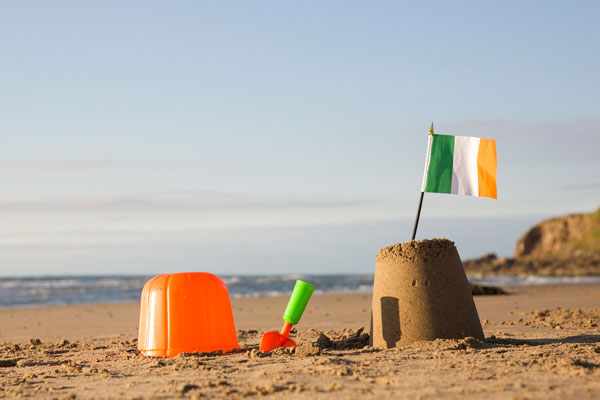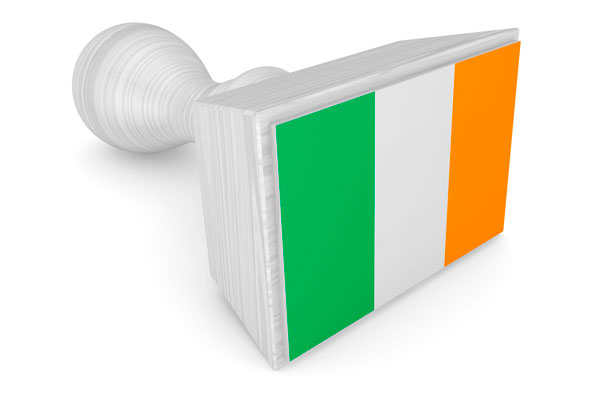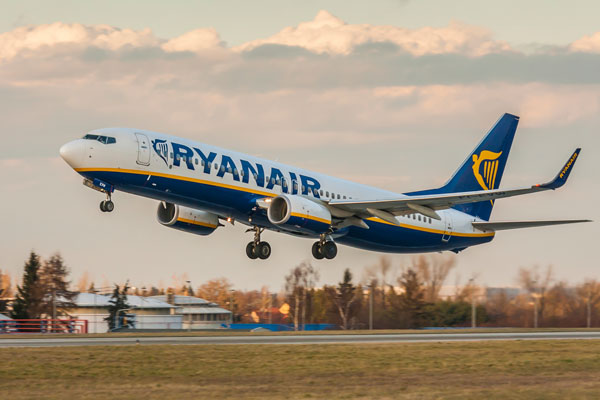Student Guide to Ireland 2025 - Admissions, Requirements, Cost, Timeline
Study in Ireland Guide: Education in Ireland is free at all levels for Irish nationals and residents of the European Union. This includes university education as well. However, this benefit is not applicable to international students. Entry into undergraduate courses (ordinary and honours degree courses) is generally done through the Central Applications Office (CAO). This way, prospective students apply through the CAO rather than applying individually to each university. The autumn intake in Ireland starts in September and the spring intake begins in February. Some universities may have enrollments throughout the year as well.
Ireland is an emerging study abroad destination with good education system, top-ranked universities and a safe and welcoming environment. This comes with an added advantage of English being the primary medium of instruction and raining at most Irish universities. Read this article as we cover all the aspects of studying as an international student in Ireland.
Benefits of Studying in Ireland
Check out the points below to learn how Ireland is as a host country for international students.
Popular Student Destinations
The top universities in Ireland are Trinity College, National College of Ireland, University College Dublin, Griffith College, National University of Ireland Galway, Waterford Institute of Technology, IBAT College Dublin, Maynooth University, Cork Institute of Technology, and Dublin City University in no particular order. Most of the best colleges in the country are situated in cities like Dublin, Limerick, and Galway. Language and Literature, Business Studies, Medical Courses, Nursing, and Social Sciences are the popular courses Indian students pursue in Ireland.
Predict your IELTS, TOEFL, and PTE in just 4 steps!
Safety in Ireland
Travelling through Ireland is not dangerous at all. The biggest danger you might face could be pickpockets which would simply snatch your bag, which is a risk anywhere in the world. Other than that the country is safe for people of Indian origin, as "racist-hate" crimes are uncommon.
Weather
Ireland's climate is heavily influenced by the Atlantic Ocean, so the warm ocean currents keep temperatures mild. In the spring and summer (May to July) the average temperature is between 64°F and 68°F (17°C and 20°C). During the autumn season (August to October), the temperature varies from 57°F and 64°F (13°C and 17°C), with September being a mild month with a sunny and warm atmosphere. In winter (November to March beginning), the temperature reaches 46°F (7.78°C) with January and February as the coldest months. Apart from a few cold weeks, snow is scarce in Ireland.
Also Check: Fully-Funded Scholarships in Ireland
Indians living in Ireland
Cities like Galway, Dublin, Cork, Limerick, and Athlone are the regions where a sizeable population of Indians resides. Until 2022, Indians made the third largest immigrant population in Ireland after the Polish and the British nationals. Every year, more and more Indian students enroll to Irish universities where they majorly seek the postgraduate and research courses.
Accommodation
First, you need to decide whether you want to live in university-managed accommodation, or with a private landlord. Choosing university-managed accommodation can also give you a catered or self-catered option. Catered accommodation offers the benefits of your meals being cooked for you and a degree of certainty with meal costs.
If you have an idea about what you prefer, the accommodation office at your university will be able to tell you what accommodation they have available, so that's the place to start. If you are thinking of renting from a private landlord or if your chosen university can't offer you anything on its own residential premises, the accommodation office should be able to provide you with a list of private properties and landlords in the area.
Wherever you choose to live, you should make sure that you know your contractual rights and responsibilities. In most cases, you will be asked to enter into a tenancy agreement, which you should read thoroughly before you sign.
Orientation
Orientation week is mandatory for international students so ensure that you arrive before it starts. This is the time when you will be introduced to the university and its services, as well as enrol in your classes. It is essential that you read your guidebook, which is provided by the college. The guide explains each part of the admission process.
Download this guide to read it offline
Activities
Along with sports, colleges offer extracurricular activities offering students a wide range of experiences. Music, drama, science, and literary societies are offered in all colleges, and there will be opportunities for outdoor education and other leisure activities. Visits to theatres and concerts, to places relevant to the courses of study such as art galleries and museums, religious centres, or historical sites, scientific companies and projects are all part of college life.
Admission Requirements
For each course, a minimum academic score of 60% and above in Standard XII is required. Foundations and Diploma programmes are available for students who have secured around 50%. The student should have completed 18 years of age before joining a degree program. It is important to remember that even though entry requirement is lower at Irish universities, the education standard is not. Hence, you should carefully enhance your ability to cope with the high standard of education through the course of next few years beforehand.
The documents to be submitted are:
- Letter of acceptance or enrollment (LOE) from your host university in Ireland
- Academic Transcripts: Mark Sheets of Standard X, XII, and the bachelor’s degree (if applicable)
- Internet-based TOEFL or IELTS scores
- If you have work experience then two letters of recommendation (LOR) from the employer/manager who knows you well and can comment on your professional abilities
- Statement of Purpose (SOP)
- Academic Resume
- Portfolio (in case of students applying for art and design courses or architecture programs)
- Others (Certificates/achievements at the state and national level and extracurricular activities)
- Proof of funds
- Health insurance
- A copy of your passport
Photocopies of these documents should be translated in English and certified by the educational institution or by notary.
Admission Process to Study in Ireland
For undergraduate courses, the Irish universities accept applications through Central Applications Office (CAO) an online enrolment system.
You will have to create an account on the CAO website to provide your basic information, submit the scanned version of your documents, a score of TOEFL/IELTS and pay application fees. You will be informed about the application process and its stages through this account.
Application Fee: All colleges require you to pay the application fee while applying, the amount of which may differ depending upon the college and course being applied to, so check with individual colleges about their application fee.
Steps: The common steps to applying for admission are as follows:
- Search for colleges and courses
- Contact schools and visit websites for information
- Narrow down your list of schools
- Take the language exams like TOEFL or IELTS
- Write Statement of Purpose, and ask for Letters of Recommendation
- Register at Central Applications Office
- Apply to the colleges which fit your interests
- Appear for video interviews of the colleges that shortlisted you (if applicable)
- If accepted, apply for Study Visa
Statement of Purpose: A Statement of Purpose (SOP) is your introduction to the college and admission officers. It is always written in the first person and describes the reason for applying to a particular college. It needs to highlight why you are a perfect fit for the college and why the college should accept you. The style of writing could differ from formal to casual, but it is important to remember that it should reflect your personality as well.
Essay: College essays are also required to be submitted by a prospective student. Essays are an important part of the university admissions process. Students may be required to write one or two essays, along with a few optional essays too. Common topics include career aspirations, strengths and weaknesses, skills, experiences, and reasons for considering a particular school.
LOR: A Letter of Recommendation (LOR) is a reference letter written by a third party describing the qualities, characteristics, and capabilities of the prospective student to recommend him to the college in terms of that individual’s ability to perform a particular task or function. The third-party could be a professor, direct manager etc.
Intake Seasons
Irish universities have one major enrolment season, which is the autumn intake in September. Some universities admit students for January intake sessions as well.
Also learn which Ireland Universities accept backlogs
Language Exams
The International English Language Testing System (IELTS) and Test of English as a Foreign Language (TOEFL) are the standardized language tests, which are required to be taken for the purpose of getting admission to colleges. Both the tests follow different formats, structures, and result bands. These tests are all different in various ways but many colleges ask for the score of any one of the two tests. So, it is up to the student to decide which exam to appear for.
Also Read: Study in Ireland without IELTS in 2025
Repetition of Exams: IELTS can be taken an unlimited number of times. TOEFL can be retaken as many times as wished, but cannot be taken more than once in a 12-day period. You must wait to receive your scores before you can book your next test.
Exam Fee: The fee for these exams is Rs. 17,000 for IELTS and Rs. 16,900 for TOEFL (approximately).
The cost of living in Ireland depends mostly on the part of Ireland you choose to live in along with the factor of how much you socialise. The currency of Ireland is the Euro. Some of the basic elements for living as an international student in Ireland are:
- Accommodation rent (on-campus or off-campus)
- Groceries and food
- Utilities like power, water, internet, etc.
- Phone bills
- Text and reference books
- Airfare for traveling back to India
Other elements which may differ from person to person would be:
- Dinning out
- Travel and vacation
- Car rent and car insurance
- Cable TV connection
School Expenses
The average tuition costs for attending a college in Ireland will vary according to the school, the course and the city your school is located in. The average rates for tuition vary from about €10,500 and €30,000 per year. This amount varies and is based on a number of factors. There is no tuition fee for EU residents and the complete education is free, however, international students are supposed to bear their course costs. International students can also look at various financial assistance and scholarships available to them.
Also Read: Cost of Studying in Ireland
Living Expenses
On average, an international student needs approximately €700 to €1000 per month in Ireland. Prices differ a lot in the big cities and small towns all across Ireland, with Dublin being the most expensive city to live in.
| Cost |
Monthly (€) |
Annual (€) |
|---|---|---|
| Rent and Accommodation (National - for Dublin) |
€636 |
€5,724 |
| Daily Utilities |
€64 |
€576 |
| Food and Beverages |
€194 |
€1,746 |
| Travel Cost |
€48 |
€432 |
| Books and Class Material |
€74 |
€666 |
| Clothes and Medical Expenses |
€39 |
€351 |
| Mobile Charges |
€14.99 |
€135 |
| Social Life and Misc |
€75 |
€675 |
| Student Charge |
€333 |
€3,000 |
| Total |
€1,477.99 |
€13,305 |
Source: Dublin Institute of Technology Cost of Living Guide 2022/23
Kindly note, the rates above are subject to change and applicants should check the official website before planning their expenses.
Medical Insurance
The Irish immigration service requires that all international students have at least a basic policy covering emergency medical expenses. Proof of insurance is required at the time of applying for a study visa. Meeting the medical insurance requirements laid down by the Irish Naturalisation and Immigration Service (INIS) will most likely be available through your college. Many colleges have a group medical insurance scheme to offer which costs a lot less. The premium for this policy is likely to cost between €500 and €1000 annually.
Education Loan
The first thing is to be aware of whether you are eligible to apply for the loan or not. The general eligibility criteria for student loan in Ireland that are followed by all the banks are:
- You should be an Indian residential citizen
- You must have a strong academic record
- You must be seeking admission to a professional, technical, or other courses of study, most banks maintain that the selected course should be job-oriented
- You must have secured admission to a foreign university/institution
- You need to be 18 or above 18 years of age to avail the loan, else your parents can avail the loan
Course Eligibility Criteria: Not every course offered abroad is eligible for an educational loan. The kinds of courses that qualify for the education loan are as follows:
- Graduation: Job-oriented professional or technical courses offered by reputed universities
- Post-Graduation: MCA, MBA, MS, or even Diplomas
These courses could be offered by foreign universities/institutes approved by the state and central government.
Loan Amount: If your total fee is INR 10 lakh, the bank may offer to give a loan of 80% of the amount and you will have to put in the balance 20%. This is called the margin amount. The maximum loan amount for studies abroad is generally around INR 20 lakh by the bank. If your tuition fees amount is INR 30 lakh, you will have to manage the rest of the funds by yourself. Some banks charge a processing fee, while others do not. It may be a fixed amount or a percentage of the total loan amount. So, if the bank charges you 1% as processing fee, that will be an additional cost you will have to cover.
Documentation Required: You will have to provide the acceptance letter sent by the university reflecting that you have been selected for the course and the schedule of fees. You would also need to show the mark sheet of the last qualifying examination to show your academic record.
All banks have different requirements for documentation, so you need to confirm with the bank first.
Repayment: Repayment starts only after the course period. If the student gets employed within one year after completion of the course, the repayment should start immediately after the expiry of one month from the date of employment.
If you do not secure a job within a year of completing the course, then repayment starts irrespective of whether or not you are employed. The loan is generally to be repaid in 5-7 years after commencement of repayment. If the student is not able to complete the course within the scheduled time extension for completion of course, he may be permitted for a maximum period of two years. Generally, you will get up to a maximum number of 10 years to repay the loan.
Conditions
You will need a study visa to be able to study in Ireland. Remember before applying that you need to show funds of at least €7000 in your bank account at the time of applying for the study visa. This amount equals the cost of living in Ireland for an international student for one academic year. Also, you need to be able to prove that you or your parents/sponsor will be able to provide at least €7000 for each year of your studies, in addition to the course fee.
Process
To apply for a study visa, you’ll need to:
- Pay your first tuition fee installment to the University
- Prepare your documents and their copies. (See below for a list of required documents for the visa)
- Submit the online application
- Pay the application fee of €60
Also Read: Ireland Student Visa: Application Process
You should provide the following documents for the study visa:
- A recent passport sized photograph
- Letter of acceptance from a recognized Irish university confirming that you have been accepted for a full-time course.
- Scores of either IELTS or TOEFL
- Proof of payment of tuition fees
- Bank statement as proof of enough funds (€7000) required to cover the cost of living for the first year of stay in Ireland.
- Evidence that you or your parents/sponsor have access to at least €7000 for the following years of study as living costs.
- Private medical insurance papers
Work permit
Students who are pursuing a full-time course and are in possession of the GNIB (Garda National Immigration Bureau) registration card can work for 20 hours part-time per week. There are two standardized periods when international students are allowed to work full-time, which is for up to 40 hours per week. The periods are from 15th December to 15th January and 1st May to 31st August. These dates correspond to the traditional summer and winter holidays. Note that these dates are fixed for all international students, regardless of the actual teaching calendar for their course.
Also Read: Graduation Day in Universities Abroad
Visa for spouse
As a general rule non-EU international students studying in Ireland have no right to bring their family with them. Spouses and children of international students can apply to live in Ireland separately, but not on the basis of their relationship to a student.
The Irish Naturalisation and Immigration Authority (INIS) might consider an exemption for certain cases from this policy. For example, if a student is pursuing Ph.D. studies (Level 10) and will be required to complete their doctorate within four years might be allowed to be joined by their partners and children.
- Book airline tickets
- Buy travel and health insurance
- Arrange accommodation in Ireland
- Arrange transportation to/from the airport to home in Ireland
- Check baggage and customs limitations
- Clear all paperwork with your home educational institution
Get your documents in order and make photocopies to store in your baggage and keep at home, including:
- Passport
- Airline tickets
- Travel insurance certificate
- Letter of Acceptance by the educational institution
- Key addresses and phone numbers
- A bank statement showing proof of funds
- Prescriptions for any medication you are carrying
- Traveler’s cheques—if applicable
- Medical and immunization records
- Academic history and university transcripts
Homesickness: Homesickness is a predictable problem faced by most students at one point or another. It may occur at the beginning or even well into your year. Homesickness will pass. Be patient. Give it at least two weeks. If you are feeling sad, explain what is happening to your friends. Do not hide in your room; if you do, the feeling will only worsen. Find your counselor staff with whom you can talk about homesickness or other problems. Homesickness might be made worse by frequent, long telephone calls home. Most homesick students feel more homesick after a call home than they did before they picked up the phone. Try to limit yourself to one call home every week. The sooner you integrate into the university experience, the sooner your homesickness will pass.
Learning basic cooking: Cooking for yourself will save you money. Indian food is expensive in Ireland. It will also satisfy your urge to eat "your food" during moments of cultural shock. Indian spices are not commonly available in smaller cities, but there are often shops on campus where you can get ingredients used in most Indian food. The most popular and easily accessible supermarkets in Ireland are Dunnes Stores, Tesco, Supervalu, Aldi, and Lidl, etc.
Transportation: Public transport is very expensive in big cities like Dublin. On average one month student pass for the public buses will cost you around €105. That is why most people travel on cycles, and that includes senior professors as well. A decent bike will cost €120-160 or you can choose to rent one on a monthly basis.
Placements
Most universities have career advisors and workshops meant to improve your soft skills and assist in your job search. Irish universities don’t follow that concept of ‘campus placements’ as it is understood in India. Students find jobs on their own; the college only helps you prepare for the job. Most Irish study programs include a trainee-ship or an internship.
Work visa
A person who qualifies for ‘Third Level Graduate Scheme’ scheme (level 8 or upwards qualification) will be granted a 12 month extension, starting from the day they receive their exam results.
After that you will have to apply for a work visa under the ‘Work Permit Scheme’. This scheme is for non-EU citizens in situations where there may be labor shortages. A work visa is initially issued for up to two years and is renewable after that.
Q: Is it worth to study in Ireland?
Being listed among the best countries to work in, Ireland is also home to some of the best universities in the world. With a good community, Ireland is a welcoming country for international students. Along with that, it is one of the happiest countries in the world and the cost of living for students in Ireland is quite affordable than many other study abroad destinations. Hence, Ireland is a good pick when it comes to choosing an ideal study-abroad destination.
Q: How much money is required to study in Ireland for an Indian student?
The average estimated cost of living in Ireland for Indian students is ?90k per month and the average cost of studying in Ireland ranges from ?8L to 24L per annum. Overall, Ireland is a cheaper study-abroad destination for Indian students as compared to other popular nations.
Q: What is the acceptance rate for NCI Ireland?
National College of Ireland is one of the best public research universities in the Ireland. The National College of Ireland is among the colleges that do not publish official data on the acceptance rate. However, as per some unofficial sources including EduRank, the National College of Ireland acceptance rate is 52%. This shows that NCI is moderately selective for admissions and international students may find it comparatively tougher to get into. Please note that, the data on the acceptance rate is taken from unofficial source, therefore, it is subject to vary.
Q: What are the requirements for admission to Griffith College (Ireland)?
International students can apply for Griffith College admission through the official website. We have mentioned below the Griffith College requirements for international undergraduate and graduate admissions:
Griffith College requirements for undergraduate admission:
- Completion of secondary school comparable to Australian Year 12 or equivalent academic achievement
- Meet the English language requirements
- Submit the additional test score for ACT/SAT (if required)
Griffith College requirements for undergraduate admission:
Q: How can I apply for Dublin Business School Ireland admissions?
Dublin Business School accepts international applications through the Official Application Portal available on the university's website. Students can refer to the listings below for the steps to apply at DBS Ireland:
Step 1: Open the Application Portal and head to the form
Step 2: Select the student type and course
Step 3: Course selection:
- Select a course type
- Select a course
- Select the year of entry as ‘Year 1’
- Choose the batch commencement date
Step 4: Enter personal details:
- Add details like name, date of birth, contact details, gender, nationality, etc
- Address
- Emergency contact details
Step 5: Keep filling the details and continue until the last step:
- Insert previous education information
- Input other details
Step 6: Submit the application form
Q: Is Griffith College in Ireland good for doing a computer Science course?
Griffith College Dublin offers an affordable master's degree in computer Science for international students. The Griffith College Dublin fees for MS in computer Science is around INR 12.59 L for first-year. Therefore, yes Griffith College in Ireland is good for doing a computer Science course.
Q: How is an MS in Data Science from Maynooth University, Ireland?
Maynooth University provides 1-year master's in Data Science and asks for an INR 15.14L tuition fee. The goal of the MSc in Data Science and Analytics is to provide students with the information and abilities needed to gather, process, analyze, and visualize data to find trends, assess models, and extract valuable information.
The National Centre for Geocomputation, the Departments of Mathematics and Statistics, and Computer Science collaborated to create the course. Programming, statistics, and databases are covered, along with advanced issues in contemporary statistical machine learning. The course covers topics such as the implications for business and government, as well as the ethical and societal ramifications of data use.
Q: Is Griffith College in Ireland good for doing a computer science course?
Yes, the Griffith College in Ireland good for pursuing Computer Science courses because of its affordable tuition fees. Applicants can apply for admission easily through the official website. Mentioned below are the Griffith College MS in CS fees for Indian students:
| Fees components | Amount (Annual) |
|---|---|
| Tuition & Fees | INR 1.2L |
| Academic Administration Fee | INR 22K |
| International Student Support Fee | INR 17K |
| QQI Fee | INR 17K |
| Protection of Enrolled Learner Fee | INR 25K |
| Total Approximate Fees | INR 1.3L |
Student Guide to Study in Ireland FAQs

Priya Garg is a seasoned content writer and editor. With her rich experience in content writing, teaching and research & analysis, Priya believes in providing only the correct information which is also up-to-date. H... Read Full Bio

Her guiding principles in life are to be honest, genuine, thoughtful and caring with these strong words Deepika have completed 5 years in the education industry. Her expertise and experience helps in understanding s... Read Full Bio
- Universities in Ireland32 Universities
- Universities in USA1037 Universities
- Universities in Canada174 Universities
- Universities in Australia122 Universities
- Universities in UK175 Universities
- Universities in New Zealand70 Universities










Comments
(70)
S
2 years ago
Report Abuse
Reply to Shobhit Singh
R
2 years ago
Report Abuse
Hello Shobhit. Depends on whether your online degree course from Amity University is recognized by the university you will be applying for your higher education to. You can refer to the admission requirements of your preferred university or check with our Study Abroad Counsellors: here: https://stu
...more
a
2 years ago
Report Abuse
Reply to abhishek gupta
R
2 years ago
Report Abuse
R
2 years ago
Report Abuse
You can get in touch with our counsellors here: https://studyabroad.shiksha.com/apply to better understand the nuances of studying abroad, ROI and what to expect after successful graduation.
M
3 years ago
Report Abuse
Reply to Meena Kandi
R
3 years ago
Report Abuse
Hello Meena. Direct entry is only possible to universities/colleges that are affiliated with your current college or school of study. Otherwise, you will be required to start fresh. You can check out popular universities to study in Ireland here: https://studyabroad.shiksha.com/ireland
S
3 years ago
Report Abuse
Reply to Sibanarayan
R
3 years ago
Report Abuse
Hello Sibanarayan. The fee is approx 40 lacs/ year and it is a five-year programme. The tuition fee will not reduce for consecutive years unless you bag a scholarship or financial grant from the university based on your academic records. You can get in touch with our counsellors for more on the sam
...more
R
3 years ago
Report Abuse
Reply to Rucha Deshpande
R
3 years ago
Report Abuse
Hello Rucha. you can check out our university pages on TCD and UCD here: TCD: https://studyabroad.shiksha.com/ireland/universities/trinity-college UCD: https://studyabroad.shiksha.com/ireland/universities/university-college-dublin You can also get in touch with our counselors here: https://studyabr
...more